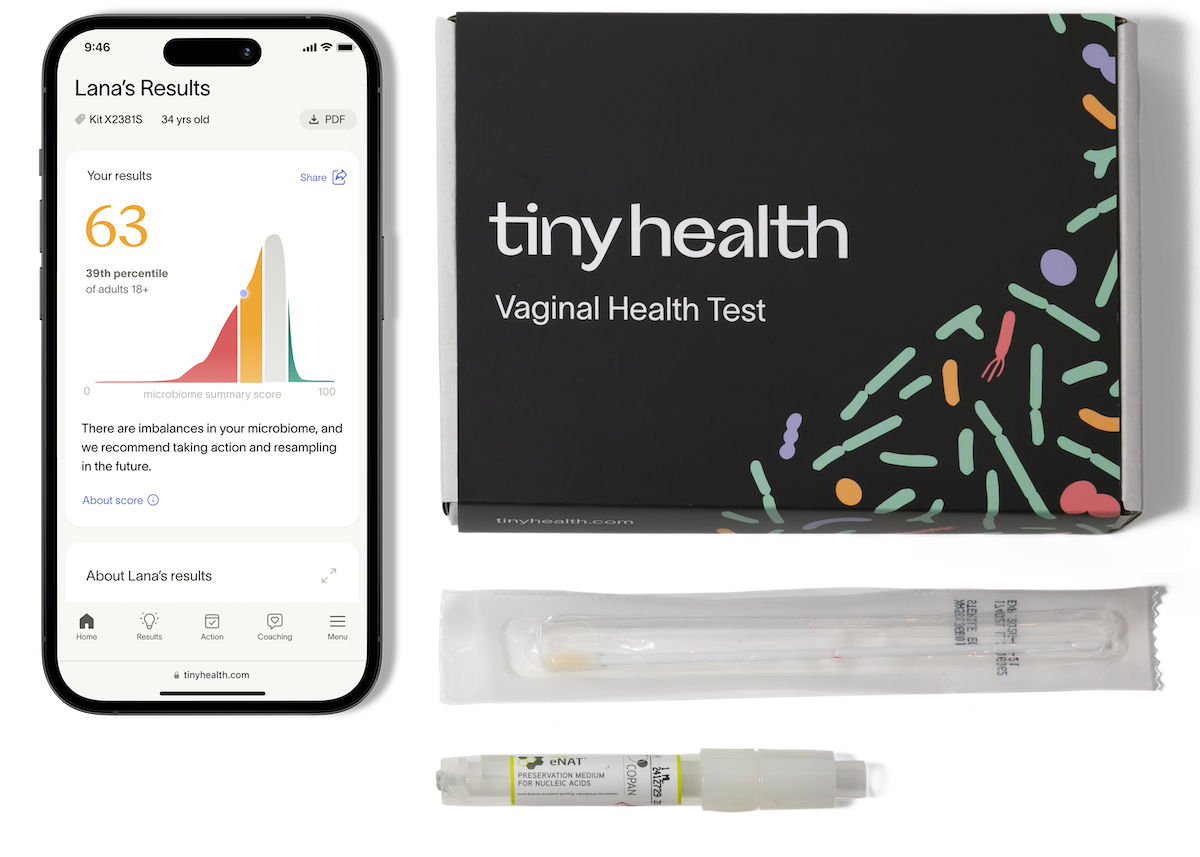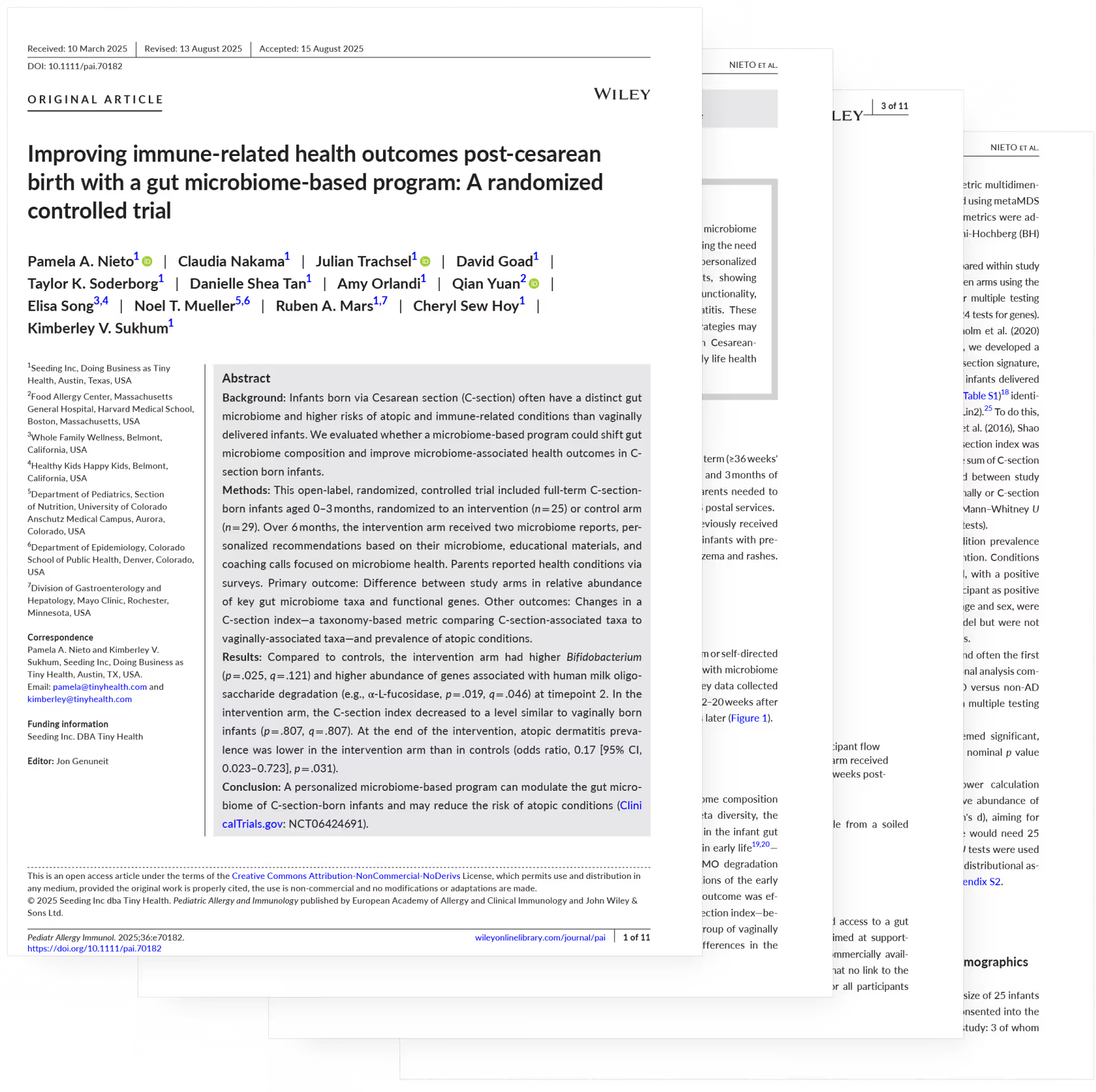The best microbiome test for pregnancy
Tiny Health was founded by a mom who wanted to test her baby’s gut trajectory after her C-section and couldn’t find a straight answer in the market. Our test is the first to measure what matters most to a healthy baby. Other microbiome tests use “adult reference ranges,” or outdated technology that leads to incorrect conclusions.
Your privacy comes first
- Your info is confidential
- Data is encrypted and secure
100% CLIA compliant lab
- Tested in the US
- Guaranteed accuracy & reliability
- Highest quality standard
































.jpg)
.jpg)
.jpg)

.jpg)
.jpg)

















